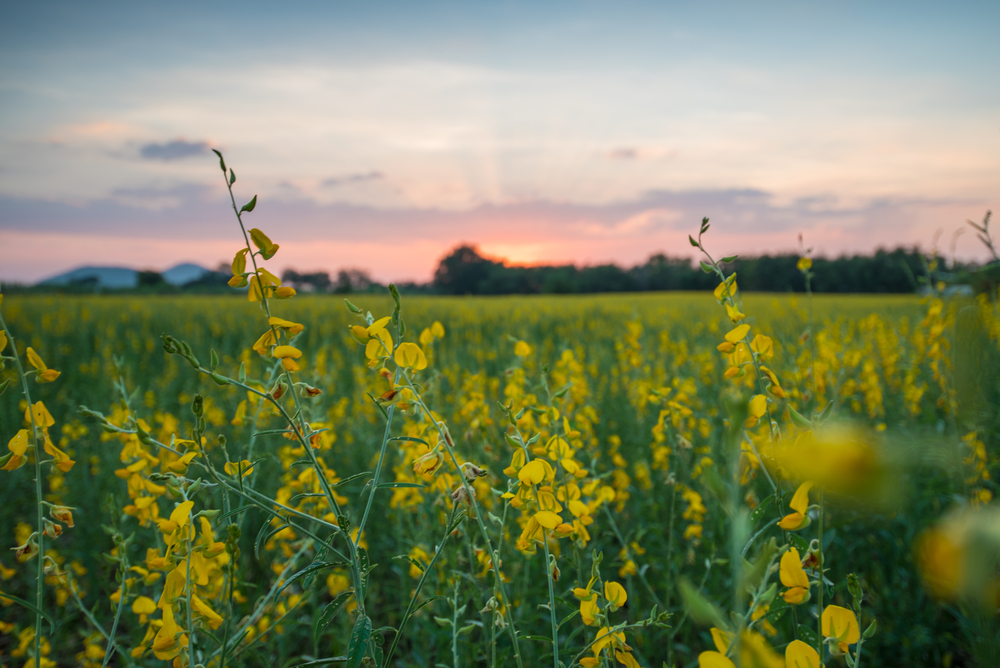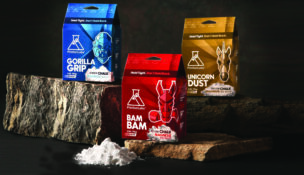Hemp industry professionalized and celebrated in Northern Colorado
Colorado’s first-mover advantage will likely keep it at the forefront of the hemp industry
John Garvey //April 20, 2017//


Hemp industry professionalized and celebrated in Northern Colorado
Colorado’s first-mover advantage will likely keep it at the forefront of the hemp industry
John Garvey //April 20, 2017//

It was no place to joke about smoking the drapes. The fourth annual NoCo Hemp Expo, held March 31 and April 1 at the Ranch Events Complex in Loveland, was no nonsense. The industry has taken on a degree of professionalism few would have foreseen, still maintaining a fun and enthusiastic spirit.
Morris Beegle – the event organizer and president of two other hemp companies – would be the first to acknowledge a long list of advocates, business people, publishers, collaborators and volunteers that have been indispensable throughout the planning process.
Section 7606 of the 2014 Farm Bill essentially ended federal hemp prohibition, authorizing state departments of agriculture to permit hemp research and pilot programs. Although a huge leap forward, this still meant cultivation couldn’t have a purely commercial rationale.
Additionally, farmers face the risk of a crop going “hot,” meaning it has too much THC to meet hemp’s restrictive legal definition. When that happens the crop has to be sequestered.
In a nutshell, compliance is tricky and the industry is, by necessity, focused on R&D.
“There are a large number of products that one can make out of hemp,” notes Dr. John McKay, director of genetics at New West Genetics in Fort Collins. “If you walk around this hemp expo you’ll see some of those: textiles, human foods, animal feed. There’s non-THC cannabinoids in hemp that people are extracting and making nutraceutical products. So what our goal really is is to make plants for outdoor farm production that can be mechanically planted and mechanically harvested and yield well in Colorado and other growing environments. Then the traits that they should have [are] still an open question.”
Plant genetics are foundational to the industry for both legal and practical reasons. Hemp can be bred for specific qualities or a combination of qualities including grain, fiber and expression of compounds which underlie its scent and medical properties.
For legal purposes, the first breeding target is always reliably low THC. (In case you’ve just escaped captivity in an isolated tribal area of Papua New Guinea after 30 years, THC is what makes people high.) Fatty acid and protein ratios within the grain must also be considered based on the market’s demands.
McKay is excited to see a market emerging for hemp similar to those for conventional crops.
“Ultimately, we need farmers to have a place to go sell their crop to at the end of the season, and so that’s starting to develop in the U.S. now. It obviously hasn’t been anywhere, and Colorado was one of the early adopters of having a certified, or regulated hemp program through our Department of Ag. A lot of the trial and error is happening here.”
While proponents of hemp legalization have long touted the plant’s myriad industrial uses, policy reform has really been a result of its medicinal value to children with epilepsy, psoriasis and other conditions. The best-known and most sought-after of its many medicinal compounds is cannabidiol (CBD). Cannabinoids, including CBD, have been the focus of most literature on therapeutic applications and public policy pertaining to hemp. Terpenes, which give hemp its scent, also lend to its medicinal value.
While the Colorado Department of Agriculture has been supportive of hemp farming, no nationwide market can exist until the crop is removed from the Controlled Substances Act — or at least re-scheduled. McKay figures regulatory hurdles are falling away “at a pretty decent pace,” but legal impediments continue to hamper collaboration and progress.
Most hemp grown in Colorado is for medicinal and self-care products like tinctures, vaping oils and nutraceuticals, but around 10 percent is being cultivated for: grain, building materials, composites and bioplastics.
“A lot of people don’t even realize that [there are] literally millions and millions of cars on the road here in the United States today with hemp composites in them,” says Eric Steenstra, president of Vote Hemp. “The composites industry I think is … it’s a multi-billion dollar market right now.
Vote Hemp advocates policy reforms needed to allow hemp cultivation, research and commercialization to blossom. Sinestra, who was the executive director of Hemp Industries Association for eight years, is well-versed in hemp policy issues and R&D.
Hemp can be used as a replacement for fiberglass, he explains, and since 2004, BMW has been using it as a fiber base for composites in door panels in the M3 and M5 models. A couple American companies Steenstra knows of are already doing this, though they have to import the fiber.
“They take the hemp fiber, non-woven, they run it into a large machine, spray a resin on it and put it into a huge, like 80-ton press, and then out comes these finished door panels," Steenstra says. "They put the leather trim and all the other stuff on it. This is incredible, and they’re a lot lighter weight.”
Hemp fiber composites are also more durable than fiberglass.
Hemp’s prohibition and path to legalization are convoluted subjects beyond the scope of this article, but the policy discussion can’t be completely sidelined.
One sub-topic in particular merits greater attention.Law enforcement agencies and politicians opposed to legalization often cite concerns about marijuana enforcement.
After scouring news, speaking to founders of the National Hemp Association, interviewing and networking with hemp farmers and entrepreneurs, they seem to almost unanimously agree that public figures voicing such concerns are either idiots or posturing.
Since Canada legalized hemp cultivation in 1998, there has not been a single documented case where a hemp grow has been used to hide a clandestine marijuana crop. It doesn’t make sense from a plant breeding standpoint, and it can be stated with near certainty that, on both sides of the border, legal and illegal growers do their best to keep the two separate.
Colorado’s hemp industry has achieved several major milestones since hemp was legalized (along with its naughty cousin) under Amendment 64, which took effect in stages beginning in late 2012. Although Uncle Sam took a while to fully grant permission, genetics, breeding and product development have been blasting ahead. Fewer crops turn “hot” each year as agronomists get a grip on which cultivars to grow, and in what manner, and when to harvest. Nationwide, the industry’s progress is perhaps most evident each year at the Expo.
Colorado’s first-mover advantage will likely keep it at the industry’s forefront for many years, in spite of its drought- and hail-prone climate. People have learned which cultivars prosper at this latitude, their efforts buoyed by coalitions and business partnerships. The state’s relatively supportive legal environment has attracted talented geneticists, entrepreneurs and (I will grudgingly acknowledge) lawyers. The industry isn’t going anywhere, but it would be helpful to all concerned if Washington would take its foot off the brakes.
Eric Steenstra and other sources are optimistic that the 115th Congress will enact new policies allowing industry growth to switch gears and achieve long-overdue economic and technological impact. Politicians as a class have ignored or obstructed efforts at policy reform for years, although some Colorado lawmakers are noteworthy exceptions.
At any rate, hemp remains a Schedule I Controlled Substance, and the Justice Department’s reluctance to acknowledge and codify the distinction between hemp, marijuana – and for that matter, heroin – continues to exasperate business people and farmers.
Get the heck out of the way, Sam.
More on the NoCo Hemp Expo here.

























